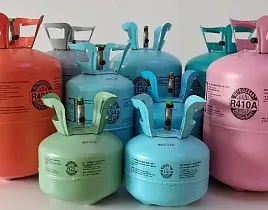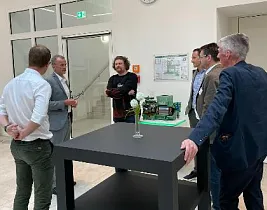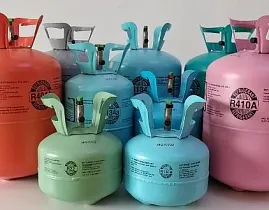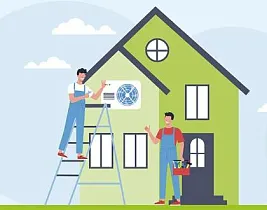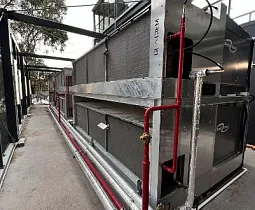
In Chile, in 2018, direct GHG emissions from the refrigeration and air conditioning sector amounted to 3,652 kt CO2 eq, an increase of 32% since 2016. The "industrial refrigeration" subcategory was the main source of emissions in 2018, with 51% of emissions. It was followed by mobile air conditioning with 18% of emissions, commercial refrigeration (16%), stationary air conditioning (12%) and to a lesser extent domestic refrigeration (2%) and refrigerated transport (2%).
Table. GHG emissions for the refrigeration and air conditioning sector (in kt CO2eq)
| 2010 | 2013 | 2016 | 2017 | 2018 | |
|---|---|---|---|---|---|
| Commercial refrigeration | 194.3 | 359.8 | 488.2 | 530.4 | 571.0 |
| Domestic refrigeration | 33.4 | 49.5 | 79.3 | 70.2 | 75.5 |
| Industrial refrigeration | 528.1 | 879.0 | 1,326.3 | 1,452.6 | 1,847.1 |
| Transport refrigeration | 37.6 | 63.4 | 78.8 | 72.7 | 73.1 |
| Stationary air-conditioning | 76.6 | 162.7 | 251.0 | 348.6 | 434.0 |
| Mobile air-conditioning | 284.3 | 422.1 | 554.2 | 614.9 | 651.4 |
| Total | 1,154.3 | 1,936.6 | 2,777.7 |
3,089.4 |
3,652.1 |
In recent years, the share of commercial refrigeration in this distribution seems to show little increase, while the shares associated with industrial refrigeration, mobile and stationary air conditioning have increased. This is linked on the one hand to a decrease in the construction of new supermarkets, and on the other hand, to an increase in the use of R507A for industrial applications in agro-industry as well as an increase in the number of vehicles with air conditioning. In all cases, the price of HFCs relative to other alternative refrigerants, their technical capabilities and the mandatory phase-out of HCFCs under the Montreal Protocol are highly influential variables.
Imperfect maintenance of refrigeration equipment (resulting from leaks due to poor sealing, failures or breakage) is the main cause of emissions in 77% of cases. This is followed, in 13% of cases, by emissions due to refrigerant transfer losses or remaining quantities left in containers. Then, in 8% of cases, emissions are due to the disposal of obsolete equipment. This percentage is expected to continue to increase in the near future if no recycling measures are taken, as equipment has a useful life between 10 and 20 years. Finally, emissions are related to leaks occurring during the installation of new equipment in 2% of cases.
According to the Chilean Ministry of Environment, HFCs account for 41.1% of GHG emissions of the "Industrial processes and product use" sector, equivalent to 2,869.5 kt CO2 Within this category, 95.9% of HFC emissions are related to the refrigeration and air-conditioning sector, i.e. 2,751.8 kt CO2eq.
